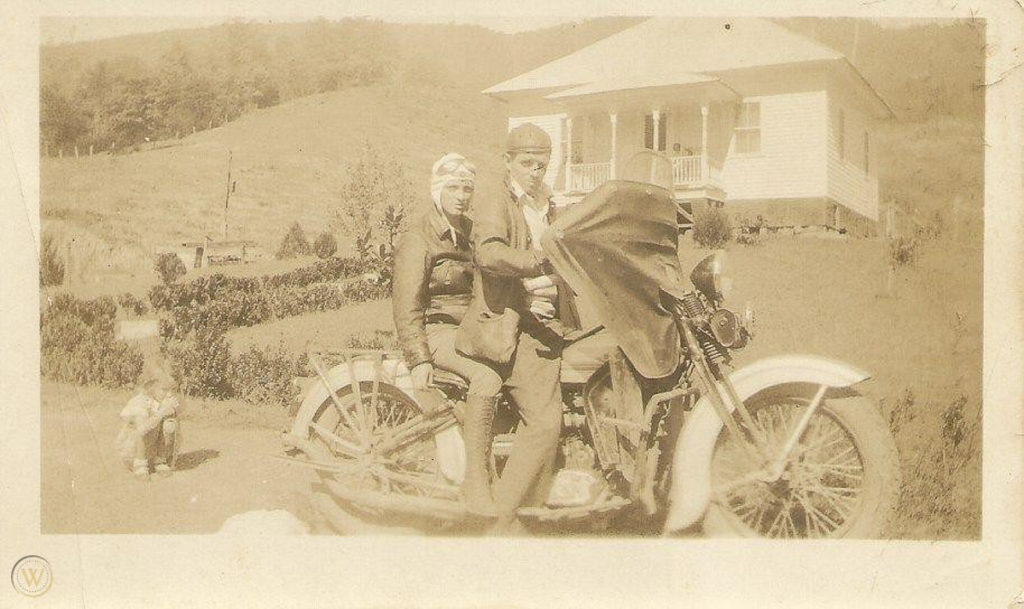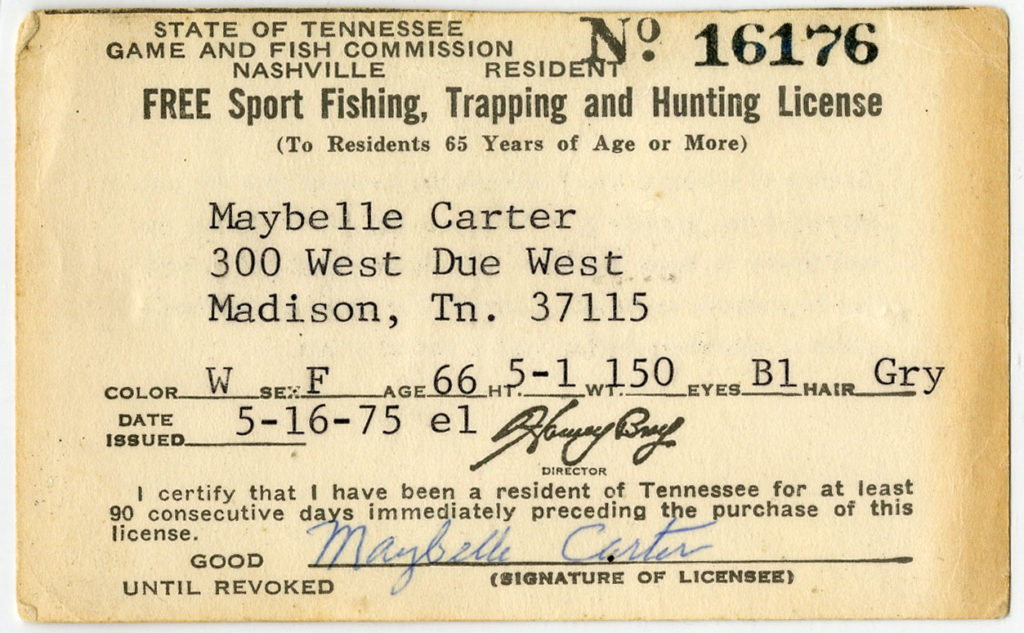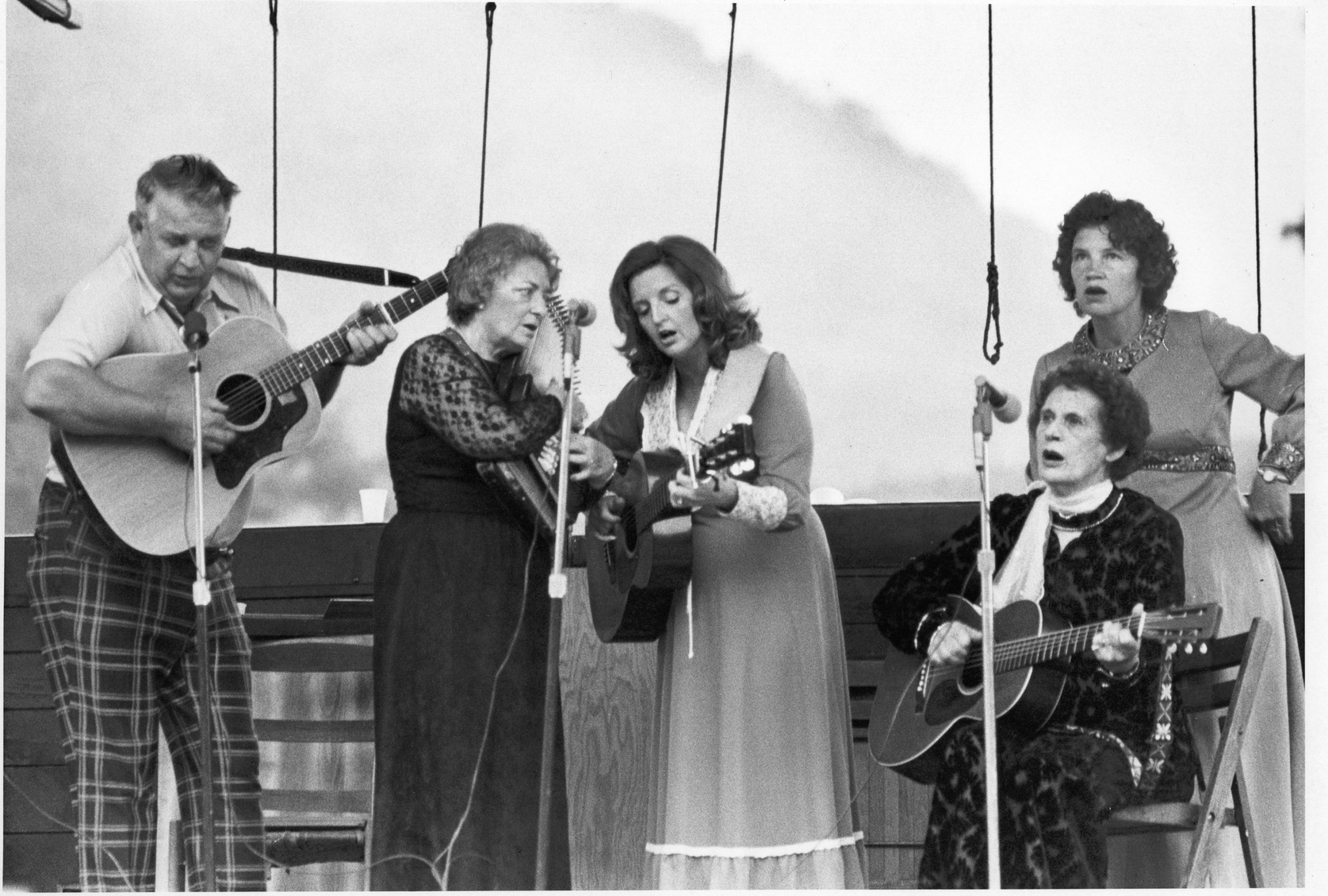Today – May 10, 2020 – is both Mother’s Day here in the United States, and the anniversary of Mother Maybelle Carter’s birthday (May 10, 1909).
For so many of us, when we think of our mothers, it’s hard to look beyond the maternal. In other words, it’s hard for us to think of them as anything other than our mothers. But everyone’s mother has a life outside that – interests, stories, dreams, regrets, adventures, achievements, and so much more.
And that idea made us think about Maybelle. We all know about the significance and legacy of Maybelle Carter in the history of country, and American, music. That is a huge part of her story – but what about the other parts of her story? Some of you may know all about her, some may only know about her music, and some may not know much at all. And so let’s explore just a few of the lesser known aspects of this great woman!
Mother Maybelle
First, we’ll start with a musical aspect: Why was she called Mother Maybelle?
Of course, Maybelle was a mother herself to Helen, Anita, and June, and after the original Carter Family stopped performing together in 1943, Maybelle and her daughters took to the road as Mother Maybelle and the Carter Sisters. Maybelle was only in her early 30s at the start of this period – imagine performing on the radio and on the stage of the Grand Ole Opry, traveling the country for performances, living out of hotels and eating at diners, all with three young girls in tow!
The Mother Maybelle name might have been part of their band persona, but she kept this moniker for the rest of her career. And everything she did underlined this role – as matriarch and mentor to so many. For instance, she took on some younger musicians as part of her act, musicians like Chet Atkins who played guitar as sideman with Maybelle and her daughters for a time – Maybelle seeing Atkins potential and talent before it was more widely recognized. She also looked after a host of other musicians in the midst of their personal struggles, including Hank Williams and Johnny Cash. And, of course, she influenced many with her extraordinary guitar playing and all-around musical prowess, including Earl Scruggs, and later, acts like the New Lost City Ramblers and the Nitty Gritty Dirt Band who invited her to perform with them because of the legacy she carried with her from the early days of country music. When she appeared on stage with these bands or at the folk festivals of the 1960s, the 20-something audiences looked up at this maternal figure and saw greatness.
As Tift Merritt noted on NPR’s All Things Considered: Maybelle Carter “defined a genre with her musicianship and her grace. More than as the great mother of her craft, her contributions as a caretaker, female and exemplar human deserve our deepest admiration.”
Life in the Fast Lane
Maybelle may be revered as a musical legend, and she may have been a steadying force to her family and her surrogate family of young, and often troubled, musicians, but she had a bit of a wild side herself. When on tour, Maybelle often drove – and she put her foot down hard on the pedal. Apparently, her husband Eck was also known as a speed demon so one imagines that when either of them was behind the wheel, there might have been a lot of backseat driving going on from the girls. And Maybelle wasn’t only a lover of fast cars; she also rode an Indian-model motorcycle!

Maybelle also looked to Lady Luck as she indulged her love of bingo and cards, and when on tour in places like Las Vegas and Tahoe, she played the slots. She enjoyed horse races and also went down to the dog tracks frequently, looking to pick a winner. Her bets on all of these gambles were low-stakes but that didn’t take away the pleasure she got from playing.
The Everyday Life
With any famous person, it’s sometimes hard to imagine them out of the spotlight and living an “everyday life” – taking part in the day-to-day domestic tasks, having hobbies and interests, not performing but just living. But, of course, they do, and Maybelle was no different. She was quite a mean cook – from tomato gravy to chicken gizzard soup to other homestyle favorites, many of which are recorded in June Carter Cash’s Mother Maybelle’s Cookbook, along with a host of family stories. She also enjoyed hunting and fishing – grandson John Carter Cash has a photograph of her and Eck standing in front of a truck bed covered in fish they’d caught. And she let loose and had a good time bowling and playing pool with family and friends. And while music on the stage may have been Maybelle’s livelihood, making music at home was often just as important.

Maybelle’s Tennesee hunting and fishing license, issued in 1975 only a few years before she passed away, was on display in the museum’s very first special exhibit, The Carter Family: Lives and Legacies. Carter/Cash Family Collection, Ms2009-090, Special Collections, University Libraries, Virginia Polytechnic Institute and State University
Caregiver
Maybelle’s kindness, generosity, and care for others – so much a part of her musical story – also came into play with her “second” job. By the late 1950s and early 1960s, though Maybelle was still performing at the Grand Ole Opry on the weekends and with other gigs, her daughters began to go their separate ways with families and their own careers (plus the music world was changing), and so Maybelle needed to supplement her income. Therefore, for a while, she worked at a local hospital as a certified practical nurse at night, helping to sit with and care for the elderly.
And so…Happy Mother (Maybelle)’s Day
These are just a few of the things that both define Maybelle Carter as the matriarch of a genre and also take us beyond her life in music to see her as an everyday person too. In Maybelle’s story, we can find inspiration, good memories and stories, and a continuing influence down through the ages. Once again, Tift Merritt sums it up well, defining Mother Maybelle not only in relation to her musical legacy but also in terms that define so many of our own mothers: “A woman of craft rather than of spectacle, Maybelle Carter was more than a great guitar player: She was a perfect bandmate. Deep in the House of Music, down the halls of life-long practice, Maybelle Carter, the unspoken Great Mother of rhythm guitar, blends in with her harmony singing, steps out when asked and breezily holds down the rhythm and the lead on her instrument as if it were no big deal.”
* If you want to know more about Maybelle as a guitarist, check out Greg Reish’s Instrument Interview with her 1928 Gibson L-5 guitar.


